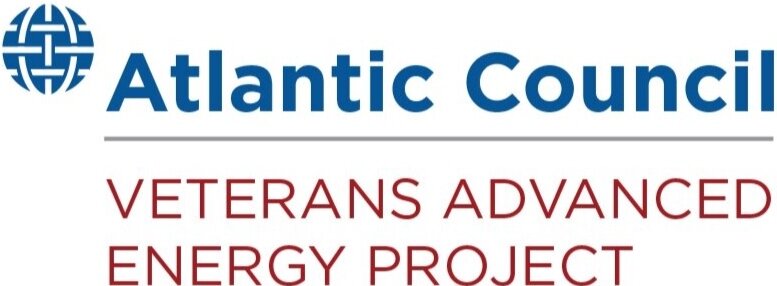Veterans in Advanced Energy Profile: Kendra Ryan
/Kendra Ryan, a 2021-2022 Veterans advanced energy fellow
Kendra Ryan, a 2021-2022 Veterans Advanced Energy Fellow, had an interest in the environment at a young age. After training as a nuclear engineer for the US Navy, her graduate studies led her to work at the NATO Undersea Research Center in Italy evaluating the impacts of active sonar on marine mammals. She later used this experience to study offshore wind and how to overcome environmental barriers. Today, her work continues at the intersection of sustainable energy and water developments. As told to Madalin How.
Why did you join the military and what was your role?
I was in the ROTC program at Rice University, and I saw it as a great way to pay for college. I come from a military family, so I have always seen it as an opportunity to serve and have an interesting job. I spent 5 years on active duty in the Navy as a nuclear surface warfare officer, where I was one of the first women to serve on cruisers. During this time, I served on three ships in both weapons and engineering departments. In the reserves, I worked for the Office of Naval Research, as an instructor, trainer, and on various staffs.
How did the military influence your career trajectory into energy?
I was always interested in environmental issues from an early age. Then in college I pursued my interest in renewables through B.S. in Chemical Engineering and a B.A. in Environmental Engineering at Rice. In my master's program I examined the impacts of active sonar on marine animals and later worked in this area on active duty for the NATO Undersea Research Center advising NATO operations planners on how to minimize risk to marine mammals from active sonar operations. I expanded that interest into other impacts on marine mammals, including the potential impacts of offshore wind energy on marine mammals. This led to my PhD that examined how to overcome environmental barriers to offshore wind energy through marine spatial planning.
What are you most excited about in advanced energy developments, and what are you most concerned about?
I am most excited about the possibilities and conversations we are having in the energy space, especially as the concerns around climate change are increasing. Public understanding and acceptance is an important part of theses conversation about the energy transition. I am concerned that political rhetoric will not translate into meaningful change. As seen in the 1970s, there was a lot of talk and important legislation regarding the environment, and yet the world became more reliant on fossil fuels.
Why is energy important to US national security?
Energy security and resilience are essential to fulfill the military missions in support of national security. Energy security means having assured access to reliable supplies of energy and energy resilience is the ability to minimize impacts from and adapt to unanticipated energy disruptions. In addition, there are financial and environmental considerations of the energy transition that directly impact national security.
Do you have advice you would like to share with other veterans?
I encourage all veterans to network with each other—personally and professionally. Create a support system for each other.
What are you most looking forward to about the Veterans Advanced Energy Fellowship?
I am excited to get to know the other fellows and advisors. Everyone has such a diverse background, so I am excited for communication and collaboration!





